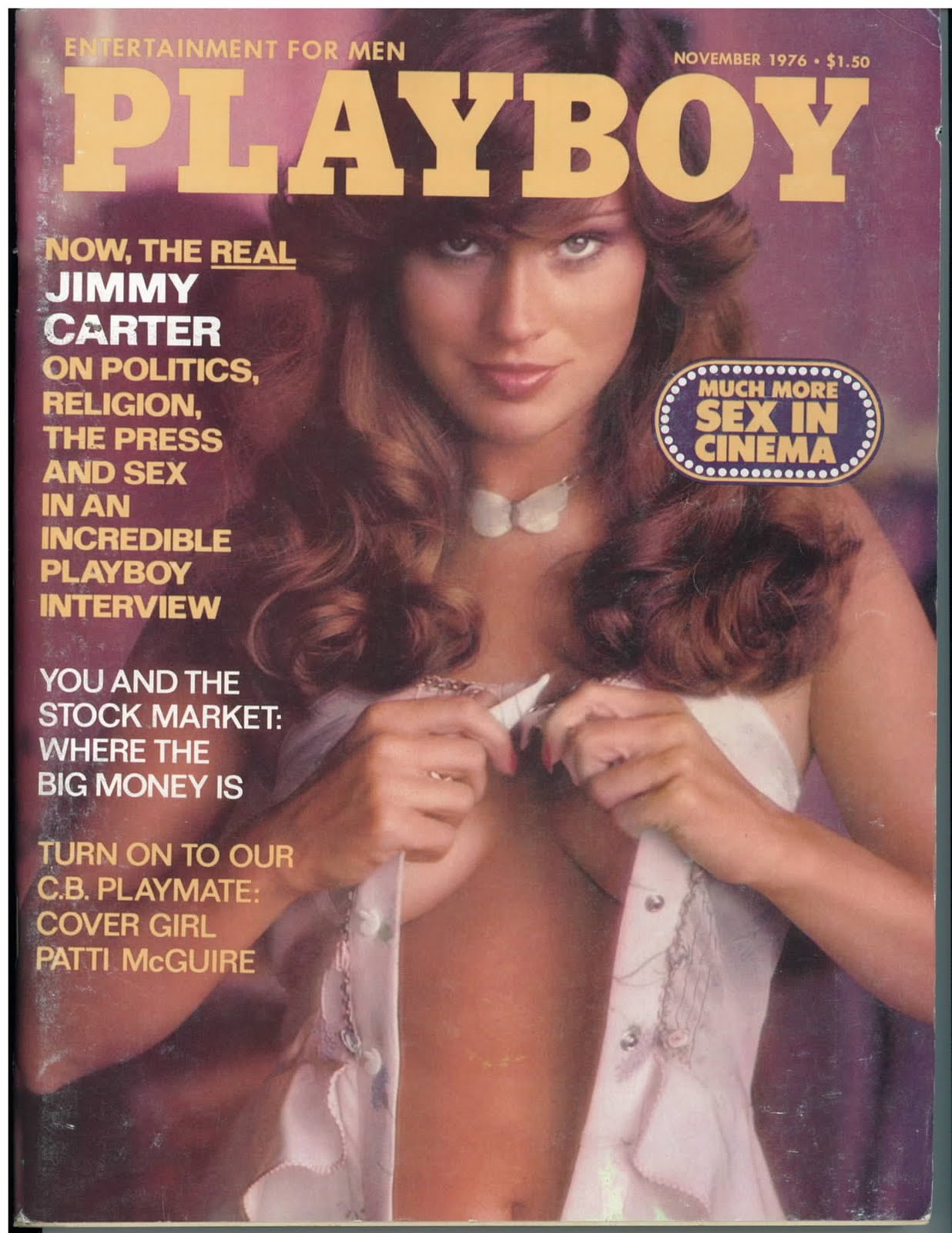
 Often, I learn the most interesting things about God in the places some people say God isn't supposed to turn up. So when I thought about writing on Easter, I was not entirely surprised to find fodder for deep reflection in the pages of Playboy magazine.
Often, I learn the most interesting things about God in the places some people say God isn't supposed to turn up. So when I thought about writing on Easter, I was not entirely surprised to find fodder for deep reflection in the pages of Playboy magazine.
The November 1976 issue, to be exact. That's where the classic, lengthy interview with then-presidential candidate Jimmy Carter, just before he was elected, appeared. In it, Carter talks openly and authentically about his Christian faith. The reporter, Robert Scheer, paints a complicated, faceted, fascinating picture of a man navigating the treacherous political waters of public service.
At the time, such a deep exploration of a politician's faith was groundbreaking. Nowadays, a kind of spiritual litmus test for the presidency is par for the course. Revisiting the 34-year-old piece on Carter-the-Christian-and-the-candidate made me long for the time when such explorations were new and fresh.
In Scheer's profile, Carter comes across as a man of devout, abiding faith--the kind that is a compass for every area of his life and, yes, his politics. But Carter isn't a theocrat. He's not trying to bring everyone else (including his rather ribald campaign staffers) in lock step with his own beliefs. He's kind and more than tolerant. He accepts people for who and what they are. If he's interested in proselytizing, his approach is to lead by example, not by a doctrinaire, iron fist.
Carter rose to prominence during the turbulent early years of the civil rights movement, confronting insidious and violent racism in his home state of Georgia as it wrestled to become what he called the "New South."
Scheer doesn't portray Carter as a messianic figure or a perfect man who always makes decisions for the greater good and in love. Carter is weak and flawed, and the reader feels that is part of what makes him so appealing and authentic.
One passage in particular in Scheer's story gave me pause--a catalyst to take stock not only of how we assess public figures, but of my own heart and soul.
"The real heroes of the era were less then 10 miles up the road in either direction from his home all his life, taking the most terrible punishment, and [Carter] won't admit that he shunned them like nearly everyone else. Like all of us, Carter is addicted to the theory that we progress by stressing our virtues rather than by dwelling on failures; this is the major theme of his campaign speeches. There's undoubtedly some merit to this approach, but it seems to me that it excludes serious learning from past error," Scheer wrote.
Would that we all would understand the truth of that statement. We may be believers, but our belief is sometimes shaky. We may be redeemed, but we are far from perfect creatures.
None of us wants to be defined by our worst moments. And our faith tells us that God doesn't define us that way, either. That doesn't mean, however, that we should try to obscure our shortcomings, inconsistencies, and failures, whether moral, ethical, or of conscience.
As I understand it, the point of the Easter story--of Jesus' suffering, death, and resurrection -- is that we can't fix ourselves by ourselves. We cannot live a perfect life that would earn our place in the kingdom.
The point of Easter is grace. We can't do it by ourselves. In fact, it's nothing that we do ourselves that remakes our hearts and minds into the kind of perfection that God deserves from the people God loves (and who are supposed to love God).
Our leaders (civil or religious) should not be expected to live perfect, consistent lives any more than the rest of us should. We are all hypocrites. We are all conflicted. We all make mistakes.
To pretend otherwise is a lie that cheapens the grace that goes before us all.
Cathleen Falsani is author of The Dude Abides: The Gospel According to the Coen Brothers.